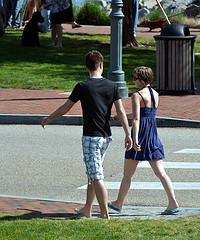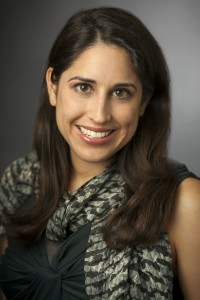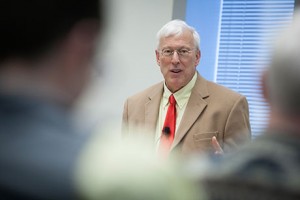By Shira Polan
Reprinted from Cornell Daily Sun, Feb. 17, 2015
While many college students may be familiar with the idea of “hooking up” as a routine social interaction, Trenel Francis ’16 analyzed the phenomenon more closely in a study she performed last summer with the University of Cincinnati. Francis set out to see whether hooking up — which she defines as “a short-term, casual sexual encounter between two uncommitted partners” — has any effect on how future relationships are perceived.
“I directly worked with [a University of Cincinnati graduate student] who had been working on two projects at the time,” Francis said. “The first was on couples’ interactions via a private therapy study and the second was about hooking up. The latter sounded more interesting to me, as well as more relevant to a college experience, so I decided to focus on hook-up culture.”
A human development major and education minor, Francis became involved in her research last year through the Robert E. McNair Postbaccalaureate Achievement Program, which provides research support to undergraduate students from underrepresented minority groups or low-income families.
“One of the things [the program] wants you to do is to get undergraduate research experience,” Franci said. “I applied to a number of research programs outside of Cornell and was accepted into the University of Cincinnati’s Research Experience for Undergraduates program for psychology.”
Using data procured by Prof. Sarah Whitton and graduate student Eliza Weitbrecht of the University of Cincinnati, Francis focused on analyzing future relationship expectations of “emerging adults” based on three variables — the perceived value of being in a long-term relationship, perceived likelihood of marriage and the intention to be in a long-term relationship in the future. All of the participants were also asked whether or not they have hooked up with someone.
“We focused on the period of ‘emerging adulthood’ because it is a unique life period in which many young adults have the opportunity to explore their sexual identity,” she said. “We found that hooking up is one of the more prevalent behaviors that emerging adults tend to engage in. Emerging adulthood occurs between the ages of 18 and 25, which usually coincides with college years.”
According to Francis, the study evaluated 287 University of Cincinnati undergraduates based on frequency of hook-ups and number of hook-up partners. Of the total participants, 136 had participated in hook ups and 151 had not.
“We asked, ‘how important to you is being in a long-term committed relationship in the future?’ The participants had to rank this importance on a scale of zero to three, with zero being not important and three being extremely important,” Francis said. “For those who hooked up, their average value was about 1.41, while those who never hooked up had an average value of 1.71, and there was a statistically significant difference between the two.”
The findings of the study, according to Francis, were fairly surprising.
“We found that those who had hooked up before were more likely to place a lower value on long-term relationships,” she said. “But despite the prevalence of hooking up and the current trend towards the delay of the onset of marriage, the vast majority of participants still plan on getting married in as early as five years and value being in a long-term relationship in the future.”
However, Francis added that the lack of explicit use of the word “future” in the poll questions and the fact that over half of the participants were freshmen may have influenced the results.
“It could be that some of the participants interpreted the question of the importance of being in a long-term relationship as right now as opposed to some time in the future,” Francis said. “Fifty-four percent of the participants were freshmen so it could be that they were thinking ‘presently.’”
Francis also said she thought it would be helpful to follow up with the participants of the study to see if they committed to their predicted behavior.
“It would be nice to see whether or not participants who had hooked up ended up actually having long-term relationships or getting married,” she said.
Francis, who is currently is studying abroad in London, said she plans to explore other psychological topics that affect college students once she returns to the United States. According to Francis, she is set to work with Prof. Robert Sternberg, human development, on her next project.
“I’m interested in Cornell or other Ivy League students’ perceptions of their own intelligence,” she said.
Following her time at Cornell, Francis said she plans on participating in Teach For America or a similar education fellowship before pursuing her PhD in either education or education administration.
“I’m actually torn between teaching kindergarten or first grade and teaching high school,” she said. “They’re obviously very different and I love kids, but my dream as far as teaching is concerned might be more fulfilled by teaching older children.”





